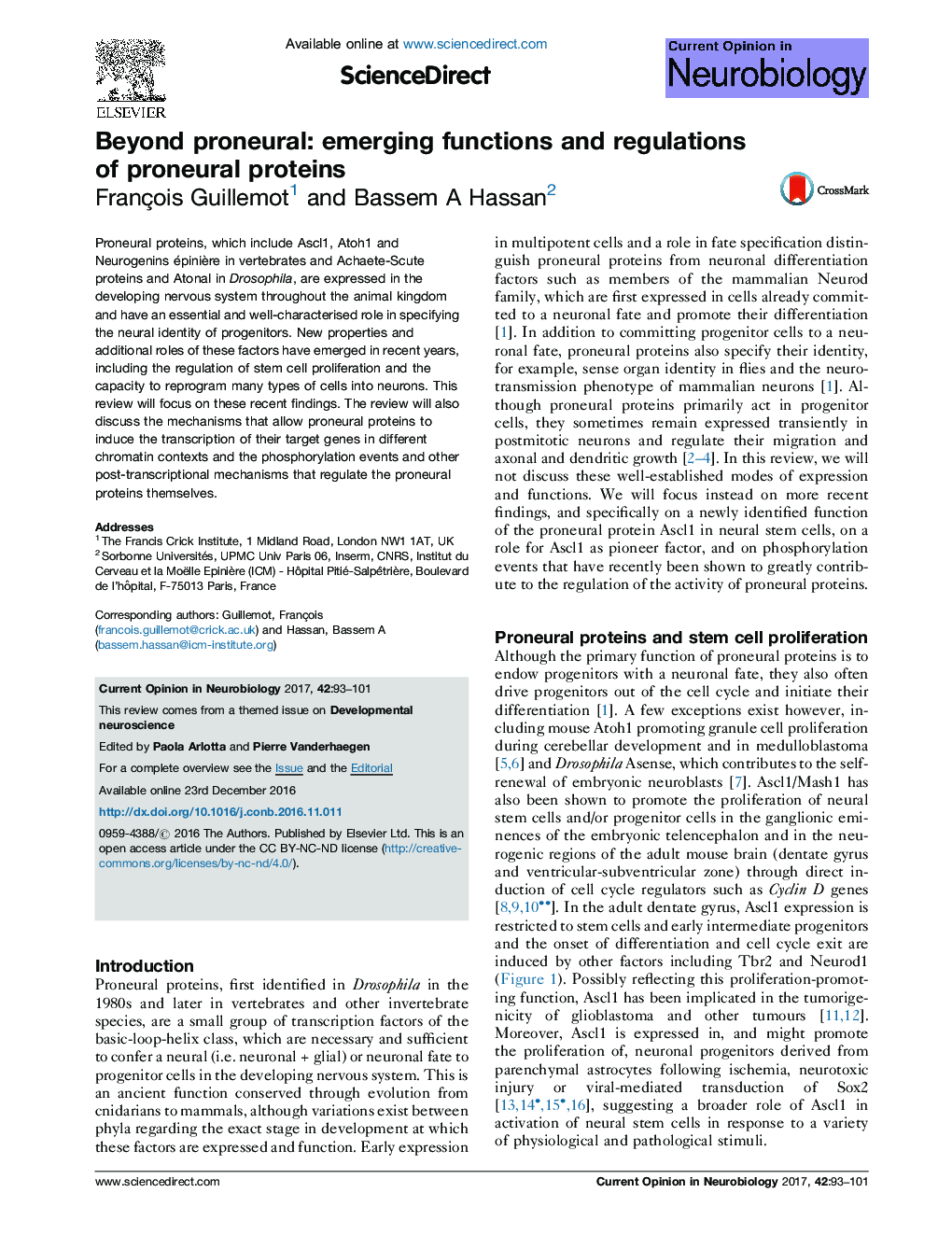| Article ID | Journal | Published Year | Pages | File Type |
|---|---|---|---|---|
| 5736930 | Current Opinion in Neurobiology | 2017 | 9 Pages |
â¢Proneural proteins promote the proliferation of neural stem/progenitor cells.â¢Among the proneural factors, only Ascl1 can reprogram multiple cell types into neurons.â¢Ascl1 is a pioneer factor that binds regulatory elements in a closed chromatin configuration.â¢Proneural protein activity is fine-tuned by phosphorylation of evolutionary divergent residues.â¢Proneural protein activity is switched off by phosphorylation of a conserved residue.
Proneural proteins, which include Ascl1, Atoh1 and Neurogenins épinière in vertebrates and Achaete-Scute proteins and Atonal in Drosophila, are expressed in the developing nervous system throughout the animal kingdom and have an essential and well-characterised role in specifying the neural identity of progenitors. New properties and additional roles of these factors have emerged in recent years, including the regulation of stem cell proliferation and the capacity to reprogram many types of cells into neurons. This review will focus on these recent findings. The review will also discuss the mechanisms that allow proneural proteins to induce the transcription of their target genes in different chromatin contexts and the phosphorylation events and other post-transcriptional mechanisms that regulate the proneural proteins themselves.
